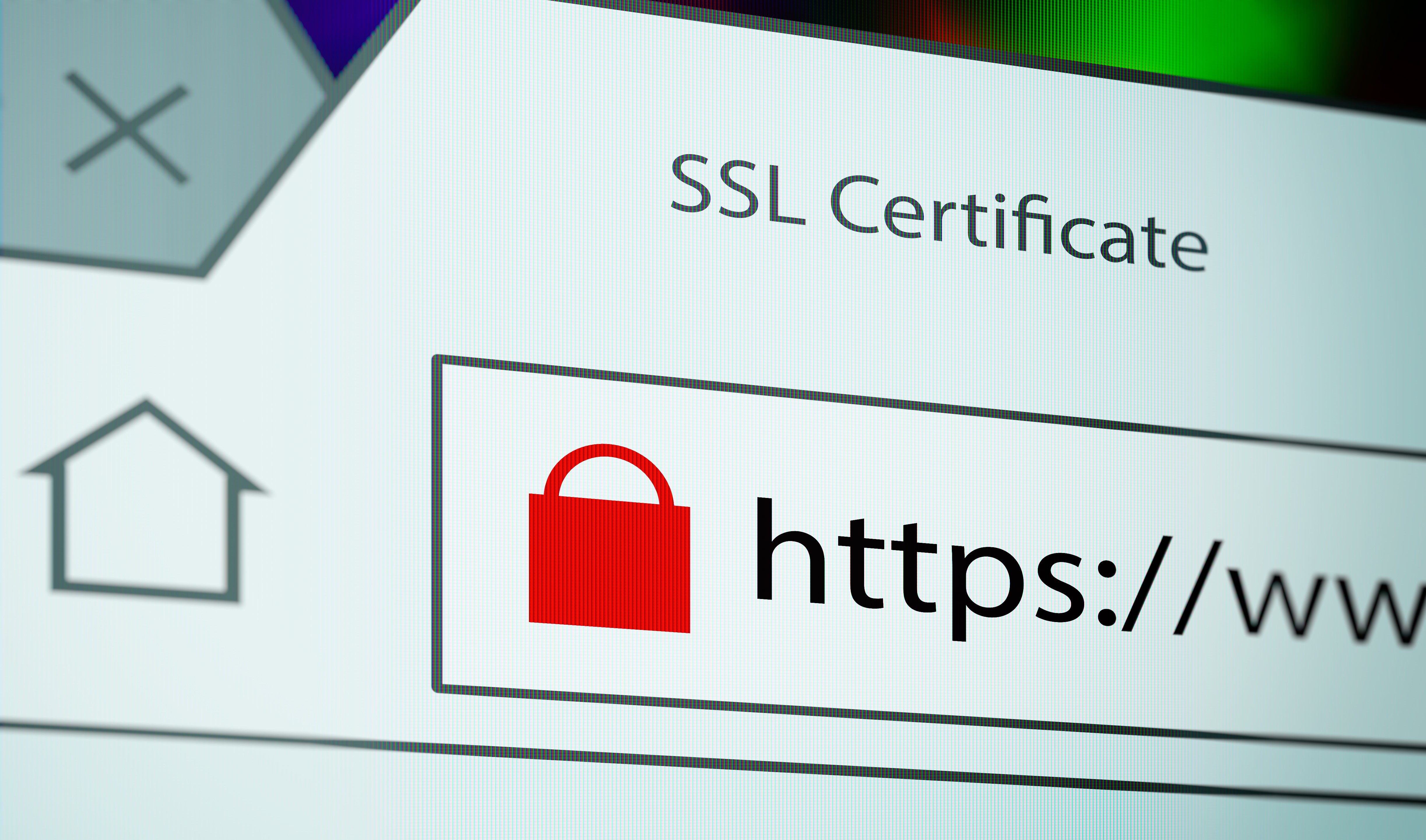
10 October 2019
If you have a business website, you may have heard the phrase SSL Certificate, but what is it and is it something that you require?
What is an SSL Certificate?
An SSL Certificate is a means of proving to your customers that your website is secure.
You may be familiar with the padlock icon that is visible in the URL bar when you open up a website, or the ‘https:’ that appears at the start of the website URL. These are the visible icons that indicate that an SSL certificate has been issued and installed. They tell visitors that this is a safe site to browse and help to establish trust in your brand.
In 2018, the ‘not secure’ message was added to all sites without an SSL Certificate. This is more visible than the padlock. The aim is to communicate that any information shared on this website is not encrypted and could be intercepted.
Seeing the ‘not secure’ message does prevent some people from clicking onto a website. If you are reliant on generating leads through your website, then removing this potential sticking point is worthwhile.
Does Every Business Website Need an SSL Certificate?
If you walked up to a stranger in the street and asked for their home address or bank details, they may be a little reticent about giving you this information. It is no different online.
Are you inviting visitors to sign up to a newsletter, make online purchases or complete an enquiry form? If you request any information on your website, then you need to show that you can be trusted to keep that information private. As such, an SSL Certificate is strongly advised. Not only does it indicate that your site is low risk and trustworthy, but it is also one of many factors affecting the position of webpages in the listings. We’ll come back to that.
If your webpages do not include features that require visitors to provide information, an SSL Certificate is not vital, although it is seen as good practice.
How does an SSL Certificate Affect Google Rankings?
Google rankings are determined by a great number of factors. Very few people know the algorithm, but what we can be sure of is that it aims to provide the best results for every search. From the browser’s perspective, a secure site is favourable to a ‘not secure’ site. As such, this influences Google rankings. Take a look for yourself: the top listings for any search are typically ‘https:’ websites’
How much does an SSL Certificate Cost?
Before you can make an informed decision, you need to know the cost of an SSL Certificate. There is not a single answer, as there are four different options and costs can be as little as a few pounds and up to around £500, depending on the option you select and if you pay for installation services. The options are:
Domain Validated (DV SSL Certificate) – this basic level simply involves a check to ensure that the applicant has the right to use a specific domain name. It’s quick to process and involves minimal paperwork and can cost around £5 per year.
Organisational Validated (OV SSL Certificate) – this is the level that Framework Digital would advise most SMEs to purchase. It involves some level of vetting, to prove that the business is legitimate. Some paperwork is required, but the process isn’t overly complicated. Framework Digital can support the application, installation and configuration of the SSL Certificate when issued, and notify Google, for £120 per year.
Extended Validation (EV SSL Certificate) – this is the full package, which is ideal for e-commerce sites and businesses where client confidence and privacy is a priority.
It includes checks on the exclusive right of the applicant to use the domain name, as well as thorough vetting of the organisation. The checks follow clearly defined guidelines to check that the business exists legally, physically and operationally and this information is audited on an annual basis. In addition to the padlock, EV SSL includes a green bar in the URL tab to indicate enhanced levels of security. Expect to pay around £500 a year for an EV SSL Certificate.
Wildcard SSL Certificates – these are a variation on DV SSL/OV/EV SSL, as one certificate covers the main domain and subdomains with a single application. It is a more cost-effective option for national chains, global brand and franchises, but pricing varies depending on the nature of the business.
SSL Certificate Renewal
An SSL certificate requires annual renewal. If a web design company or digital agency has been involved in the purchase and installation of the SSL Certificate, they should inform you when this is due to expire, but you may want to keep your own records.
Points for Consideration
Some agencies offer a free or low-cost SSL Certificate as part of the website design project. If this is something that you have been offered please check:
When the SSL Certificate is installed and Google will re-index the website. This can temporarily affect the position of your webpages in the listings, but they will bounce back up.
Our Five-point Summarise